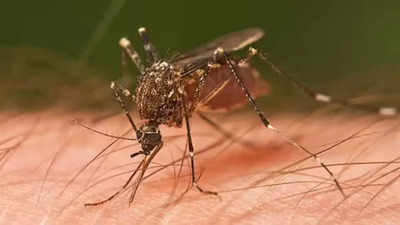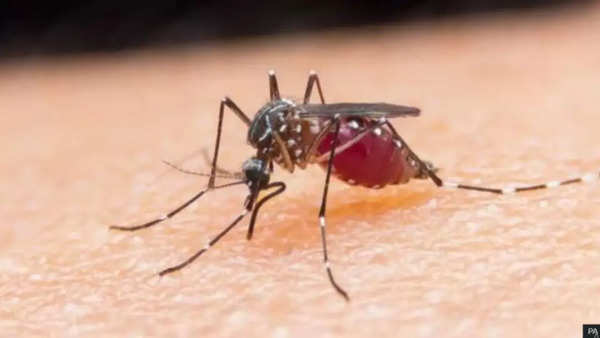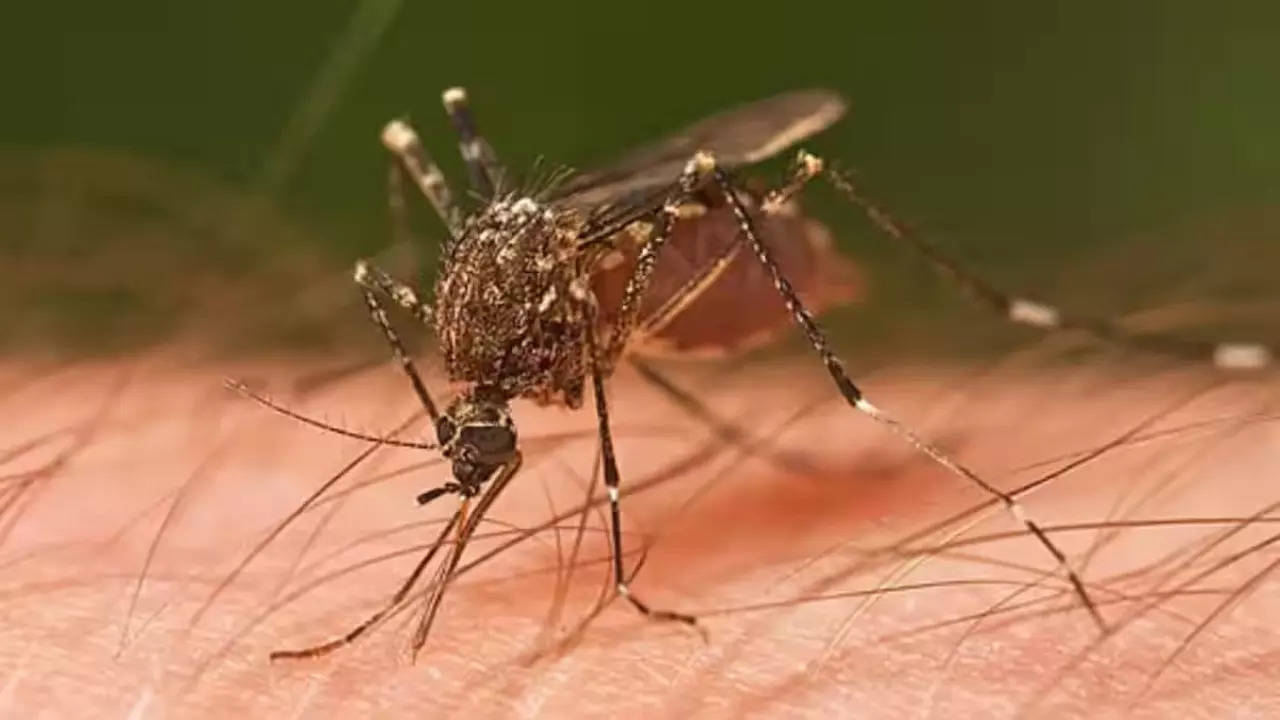Dengue is a viral disease that can cause severe illness in some people. The World Health Organization (WHO) reports an 8-fold increase in
global dengue incidence
between 2000 and 2019. In 2023, there were more than 5 million cases reported from 80 countries, with at least 23 countries reporting
dengue outbreaks
. That number has more than doubled in 2024 so far, with more than more than 10.6 million cases reported in North and South America alone.
However, Scientists believe they have found a quirky way to fight mosquito-spread diseases such as dengue, yellow fever and Zika – by turning male insects deaf so they struggle to mate and breed. Mosquitoes mate on the basis of their hearing power while flying in mid-air. They hear the attractive wingbeats of female mosquitoes to find a mate. Researchers arrived at this conclusion after conducting an experiment in which they altered a genetic pathway used by male mosquitoes to hear.
Mosquitoes have sex while flying in mid-air and the males rely on hearing to chase down a female, based on her attractive wingbeats. The researchers did an experiment, altering a genetic pathway that male mosquitoes use for this hearing. The result – they made no physical contact with females, even after three days in the same cage. It has been found that such mosquitoes did not make physical contact with females despite being with them in the same cage for three days. When mosquitoes stop breeding, the numbers will automatically come down.
Female mosquitoes are the ones that spread diseases to people, and so trying to prevent them having babies would help reduce overall numbers.
With reference to an experiment conducted by a team from the University of California, Irvine, it has been observed that the mating habits of the
Aedes aegypti
mosquitoes, responsible for spreading viruses to nearly 400 million people every year. Mosquitoes can mate from a few seconds to almost a minute. The scientist came up with an idea and targeted a protein called trpVa which is believed to be important for hearing. In the mosquitoes that were experimented on, neurons that help detect sound, showed no response to the flight tones or wingbeats of female mates. In other words, the mosquitoes could not hear anything.
Meanwhile, other mosquitoes mated multiple times with almost all the females in their cages.
Scientists believe the method can help make the female mosquitoes extinct.
How does one catch Dengue?
Dengue spreads most often through the bite of an infected mosquito from one of two species, Aedes aegypti or Aedes albopictus. These mosquitoes are the same type that spread Zika and chikungunya viruses. Only Aedes mosquitoes — most commonly Aedes aegypti — are responsible for spreading dengue. Here’s how dengue is spread:
Mosquito bites: Aedes mosquitoes become infected with the
dengue virus
when they bite a person who is infected. The virus replicates in the mosquito’s midgut and then spreads to the salivary glands. After about a week, the mosquito can transmit the virus to another person through a bite.
Risk factors: You are at a higher risk of getting dengue if you live or travel in tropical areas, such as Southeast Asia, the western Pacific islands, Latin America, or Africa.
Symptoms of Dengue:
Dengue fever symptoms usually appear 4–10 days after being bitten by an infected mosquito and last 2–7 days. However, many people with dengue don’t experience any symptoms. A sudden, high fever of 104°F (40°C) or higher with severe headache, especially behind the eyes, pain in the muscles, joints, bones, or belly are the most glaring symptoms of Dengue. Apart from those, nausea and vomiting, swollen lymph nodes, cough, sore throat, nasal stuffiness, bleeding from the nose or gums, or blood in the stool too indicate that one is suffering from Dengue.
How to prevent Dengue?
There is no specific cure or medication for dengue. Treatment mainly focuses on relieving symptoms. If you have dengue, you should rest as much as possible, take acetaminophen to control fever and relieve pain, and drink plenty of fluids. However, Dengue can be brought under control by preventing mosquito habitats by not storing water for several days, by keeping your doors and windows closed as much as possible, or investing in insect screens. One also needs to protect their skin from mosquito bites and avoid visiting areas prone to mosquitoes.
Dengue outbreaks occur in many countries of the world, including North and South Americas, Africa, the Middle East, Asia, and the Pacific Islands. Almost half of the world’s population, about 4 billion people, live in areas where dengue outbreaks could occur. Although dengue is more common in tropical regions, it’s not limited to those areas. Recent trends show an expansion of dengue cases into previously unaffected areas, including parts of Europe and the continental United States.
Study reveals how mosquitoes possess bizarre sense of smell
I’m Manas Ranjan Sahoo: Founder of “Webtirety Software”. I’m a Full-time Software Professional and an aspiring entrepreneur, dedicated to growing this platform as large as possible. I love to Write Blogs on Software, Mobile applications, Web Technology, eCommerce, SEO, and about My experience with Life.





